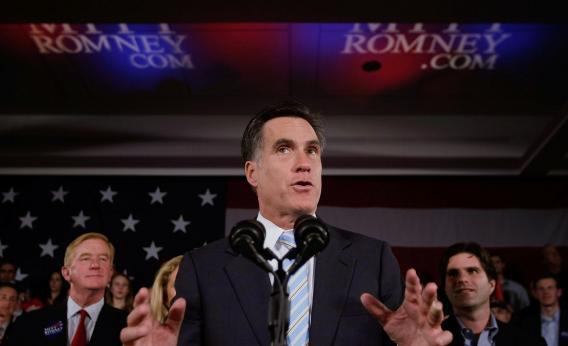One of the Obama administration’s main talking about about the weak labor market is that they “inherited” a collapsing economy from George W Bush. That’s clearly true, and it means that a lot of anti-Obama statistics you hear are badly inflated by attributing the terrible winter of 2008-2009 to Obama’s policies even though he wasn’t even in office for most of it. On the other hand, it gets a bit lame. An economy in a steep hole has an unusually high “bounce back” capacity as the Obama administration used to know before it became convenient for the president to change his mind.
But then I read things like Jeb Bush complaining about all the Bush-blaming and saying “When I was growing up, we were spanked when that happened.”
Hardy-har-har. But it’s a reminder that one of the signal qualities of this race is that Republicans never explicitly talk about a desire to go back to the Bush years, but they also don’t articulate meaningful policy disagreements with the Bush-era approach. You sometimes hear a vague notion that there was “too much spending” under Bush, but the Romney/Ryan campaign calls for more defense spending and nobody is suggesting that we repeal Bush’s major domestic spending initiative—the prescription drug benefit for Medicare recipients.
In this era of increased party polarization and coherence it seems generally reasonable to assume that parties will have a lot of continuity.
It’s been widely remarked that even though Obama beat Hillary Clinton in a pretty nasty primary, there was no defenstration of the Clintonites. Instead his administration has been dominated by Clinton administration veterans and hews to a similar course—a course that reflects the balance of power in the political party. So if a Ryan administration would amount to a return to Bush-era policies, then discussing the results of Bush-era policies is very relevant. Or if there are some Bush-era ideas that Mitt Romney rejects, he should say so clearly and explain the relevance. But the major area where Romney seems to me to disagree with Bush is on immigration. Bush favored an amnesty for otherwise law-abiding undocumented workers and Romney doesn’t. So if Romney has a story to tell about why Bush’s failed drive for amnesty was a major cause of the financial crisis, that would be a solid claim about the irrelevance of the Bush years.
But on the main issues of the campaign—taxes and regulation—Romneys policies seem to me to track Bush’s, so it’s hard to see how you duck discussing the Bush record.
